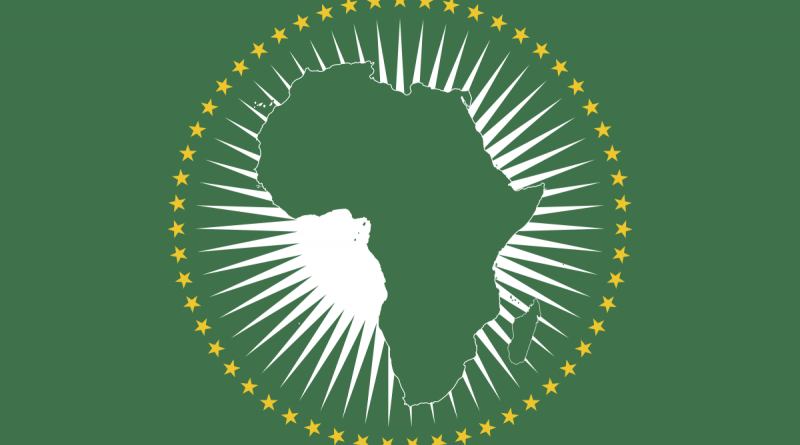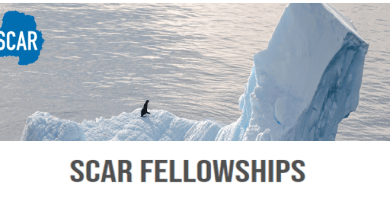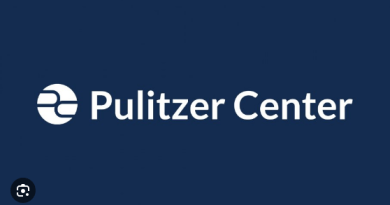Medical Research Council (MRC) African Research Leaders 2023 (£750,000 in grants)
Apply for funding to support excellent global health research and strengthen research leadership across sub-Saharan Africa (SSA). We aim to attract and retain exceptionally talented ‘rising star’ individuals who will lead high quality research on key global health issues pertinent to SSA.
Researchers should be supported by an enthusiastic local research environment and by a UK-based mentor as part of a partnership between the African and UK institutions. Awards will provide support for up to five years and the requested amount should not exceed £750,000 in total.
Medical Research Council (MRC) African Research Leaders 2023 (£750,000 in grants)
Who can apply
Lack of grant funding and research infrastructure in many SSA countries can make it difficult to attract and retain talented African scientists. As a result, African nationals are currently under-represented as leaders in medical research in the region.
This scheme seeks to support talented early-to-mid career African researchers who are either already based in a SSA country, or currently working overseas who wish to return to a SSA country.
You can apply for this opportunity if you are a researcher based at an eligible African research institution with sufficient research capacity to manage and deliver research. This includes:
- universities or higher education institutions based in SSA with degree-awarding powers recognised by the government in which the organisation is based. This includes the MRC units at the London School of Hygiene and Tropical Medicine in Uganda and the Gambia
- research focused institutes based in SSA either funded by the government of the country in which the organisation is based or by a not-for-profit organisation
- research focused not-for-profit organisations based in SSA with dedicated research capacity.
If a candidate is returning to work in SSA, they are expected to make their own arrangements for relocating and obtaining a tenured academic position at an eligible African research institution if one is not already held (and should be in post by the start of any award).
The successful candidate would be expected to continue their appointment at the African research institution beyond the term of this award.
The African candidate will:
- have completed a PhD
- be well-qualified for academic research having spent at least the last three years in active research (post-PhD)
- be building a track record of independence in their selected field and demonstrating promise as a future research leader.
Outstanding candidates who do not have a PhD but who are educated to master’s level and have substantial research experience, as evidenced by their publication record, may also be considered in exceptional circumstances.
Applications from women are encouraged. Candidates wishing to combine their research with domestic responsibilities may seek the award on a part-time basis. The terms and conditions of the award make allowances for maternity or paternity leave. Allowance will also be made to those researchers whose career has been affected, either by a late start or by interruption, for personal or family reasons.
For more details on institutional and individual eligibility, please see the MRC eligibility requirements.
The African research leadership proposal should be submitted in partnership with a UK co-investigator (mentor) offering relevant opportunities, such as:
- senior or complementary scientific expertise
- skill strengthening
- discipline widening
- technology sharing
- mentoring.
The UK partner institution may be any eligible UK research institution, including MRC institutes and university units based in the UK.
Other named investigators are permitted where they bring expertise from another discipline required to fully address the health challenge identified.
Researchers not eligible
African researchers who already have a well-established record of securing significant international research grant funding or have reached a level of seniority (for example, professor or head of department) should not apply to this scheme.
These individuals may apply at any time as a co-investigator together with a UK-based principal investigator to any of our response mode funding schemes, and as principal investigator to the MRC Applied Global Health Research Board, depending on the focus of your research.
Limit on the number of proposals
You may only make one application to this scheme at any one time. There is no restriction on the number of applications submitted by each institution. However, MRC and FCDO aim to foster research leadership in a breadth of academic environments. It is therefore unlikely that several awards will be made to any one institution in a single opportunity.
What we’re looking for
Your application will be required to meet the four key elements of the scheme, namely a:
- talented ‘rising star’ African research leader candidate
- high quality research programme proposal
- research conducive academic African environment or institution
- firm partnership with a UK partner institution.
Each should be described in the case for support that will be attached to the online application as indicated in the ‘how to apply’ section. Please refer to the detailed case for support guidance on how to structure this document. Further details on each of these elements are provided below. Please read each section carefully.
‘Rising star’ candidate
We’re looking for ‘rising star’ African research leaders. Candidates will be high-calibre, early-to-mid career researchers, who show a clear ability to cultivate a dynamic and innovative research group, likely to attract increasing international recognition and external funding by the end of the award.
The African candidate will hold (or make arrangements for obtaining) a tenured academic position at an eligible African research institution.
As a ‘rising star’, the African candidate will:
- be developing a research team and undertaking original research
- be building a track record of independence in their selected field and demonstrating promise as a future research leader
- be well-qualified for academic research having spent at least the last three years in active research. This may be evidenced:
- through a growing track record of staff and student supervision
- through an expanding portfolio of lead author publications
- by securing local or national funding
- by attracting recognition through prizes and awards.
In addition to supporting scientific collaboration with the partner UK institution, the scheme offers the African research leader an opportunity to spend time (up to three months) for further career development activities, training or skills development in either country.
Examples include:
- research management
- mentoring
- publication writing
- industry internship.
Proposed research programme
We’re looking for talented and enthusiastic investigators working in all biomedical and health research areas. Priority will be given to applications that address key health problems relevant to national and regional health needs, hence best conducted in SSA countries.
We welcome high quality applications from investigators across a broad range of research activities within the MRC and FCDO’s global health remits. Please refer to MRC’s and FCDO’s strategic priority pages.
Activities can be focused on any major health priority in SSA, including:
- research focused on the prevention and management of non-communicable diseases including cardiovascular disease, metabolic disease, cancer, respiratory disease and mental health
- prevention and control of infectious diseases (major diseases such as malaria, human immunodeficiency virus (HIV) and tuberculosis), neglected tropical diseases (including snakebite), zoonotic and emerging diseases, co-infections and issues associated with emerging resistance to current drugs
- multimorbidity (the co-existence of two or more chronic conditions, including long-term infectious and non-communicable diseases and mental health conditions)
- basic, discovery health research approaches, experimental medicine providing mechanistic insight to human diseases, epidemiological (social, genetic and immunological) research, and prevention research
- applied research approaches, including public health, health systems, health policy and implementation research
- research targeting vulnerable or disadvantaged groups including refugees, people living in informal settlements, those living with disability, neonates, children, adolescents or the elderly.
This scheme will not support clinical or health related trials including ‘phase 1’ safety, proof of principle, efficacy or effectiveness trials of any new medicinal product, device, vaccine or other clinical intervention.
However, it will support observational programmes of epidemiological, laboratory, field and clinical research and early stage developmental or formative research that may be associated with or lead to future health intervention evaluation. If this is the case, the outcomes of the research and how these will be anticipated to inform future work should be made clear.
In recognition of the COVID-19 pandemic, proposals contributing to the understanding, prevention or management of the COVID-19 outbreak are welcomed. We do not expect to only receive proposals in COVID-19 related research, however we do require an honest assessment of how the pandemic might affect your research plans.
Please note, COVID-19 related proposals will be assessed according to the scheme specific assessment criteria in a competitive manner with wider non-COVID-19 research proposals.
The majority of the proposed research is expected to take place in the African environment. The African research leader should be supported by a robust research environment in their own local institution and by a strong linkage with a UK partner. The resources requested should be specific, justified and relevant to the research proposed.
This scheme is not primarily intended to support PhD students in obtaining their degree. PhD fees, allowances and stipends will not be supported. However, if the candidate does propose to involve PhD students to deliver elements of the work within their research programme, it will be necessary to explain how the supervision and input of those students will be managed to ensure their training is protected.
The African research institution
The scheme is offered to candidates employed by eligible institutions based in SSA countries with sufficient research capacity to manage and deliver research.
The host African institution must offer a clear research and career development environment with appropriate laboratory, field or clinical facilities to enable the research activities proposed as well as supportive administrative functions. The candidate should be able to draw on mentoring from senior individuals, and their career development should be nurtured. Where appropriate, fostering of scientific links across SSA institutions is encouraged.
The African institution will be expected to provide a strong commitment to the continuity of appointment of the researcher beyond the term of the award, such as a tenured position or equivalent. There is also an expectation that over time, the African institution would increase its level of financial support of the individual (if not 100% from the outset).
The African institution may build into the application a funding contribution for institutional development to support a set of institutional strategic objectives, the outputs of which should be verifiable and be able to be monitored. This could include capacity strengthening such as improved finance, data or research management, and professional training.
Tools and good practice documents on capacity strengthening in low and middle-income countries are available on the Tropical Diseases, Special Programme for Research and Training (ESSENCE) website.
Partnership between the African and UK institutions
This scheme aims to encourage a research supportive environment for the developing African research leader, both in the host African institution and importantly involving strong support from, and access to, expertise in UK academia.
The African research leadership proposal should, therefore, be submitted in partnership with a UK co-investigator (mentor) offering relevant opportunities, such as:
- senior or complementary scientific expertise
- skill strengthening
- discipline widening
- technology sharing
- mentoring.
The individual scientific partnership between the candidate and the UK mentor must be underpinned either by an established track record of partnership at the institutional level or a clear plan for developing and sustaining long-term cross-institutional collaboration.
Previous partnering need not be in exactly the same area of research proposed in the application, however, the relevant strengths that each institution brings to the research proposed should be indicated.
Funding available
Awards will provide support for up to five years and the MRC contribution should not exceed £750,000 in total.
The majority of the funding will be for work taking place in the African research institution and so would be eligible for full economic costing (fEC) at 100% and must be entered as exceptions. Any costs specifically for the UK research institution will be provided on the basis of 80% fEC as usual. Please refer to the MRC guidance for applicants.
The total award package is anticipated to include the following elements:
- The African research leader (ARL), who is the principal investigator, will be expected to commit a significant proportion of their time (50 to 100%), over the entire duration of this award, to delivering the research programme. The African research institution will be the employer of the ARL. A contribution to the personal salary for the ARL may be requested. This may be up to 100% in the first years where a persuasive case is made. The expectation is that over time, the African research institution will demonstrate their commitment to the ARL by taking increasing responsibility for providing the salary. In the final year of award, this should be at least 50% of the personal salary.
- Resources to undertake the proposed research programme, which could include research support staff, research consumables and equipment, travel costs (between partner institutions), and other necessary costs. MRC will support indirect and estates costs for organisations based in low- and middle income countries (LMICs). Each LMIC research organisation can request indirect costs up to the value of 20% of their direct costs. Fees and stipends for PhD students contributing to the research will not be provided.
- The award has provision for a personal development element for the ARL candidate to support leadership development, strategic planning, research management and continuing professional development or other similar activities. As part of this, support may be requested for the opportunity to spend time (up to three months in total) in an organisation other than the host African research institution. This may be at the UK partner institution, or any other organisation including a biomedical or pharmaceutical company where skills and knowledge may be strengthened. This element is to provide a concentrated period of training or career development that cannot be achieved effectively within the African research institution. This would be in addition to collaborative scientific visits to the UK. Justification for the placement should be robust and details should be submitted on the placement template (DOC, 194KB). Candidates should be prepared at interview to discuss in detail any career development visit proposed.
- An institutional development element is available for the African research institution to support a set of institutional objectives, the outputs of which should be verifiable and be able to be monitored. Support can be requested for help to strengthen institutional capacity to host and sustain competitive research groups. This could include, for example, improved finance management, data or research management and other professional training. Tools and good practice documents on capacity strengthening in low- and middle-income countries are available on the ESSENCE website.
- A salary contribution for the UK mentor may be requested although we would expect this to be kept to a minimum. Other named SSA-based investigators are permitted on the application where they bring expertise from another discipline required to fully address the health challenge identified.
Tenure of award
This award is intended to provide long term support and will normally run for four to five years with a maximum tenure of five years. Candidates wishing to combine their research with domestic responsibilities may seek the award on a part-time basis over a maximum of five years. The terms and conditions of award include provision for maternity or paternity leave.
How to apply
You must apply using the Joint Electronic Submission (Je-S) system. You can find advice on completing your application in the:
We recommend you start your application early. Your host organisation will also be able to provide advice and guidance. Closing date:1 December 2022 16:00 UK time





